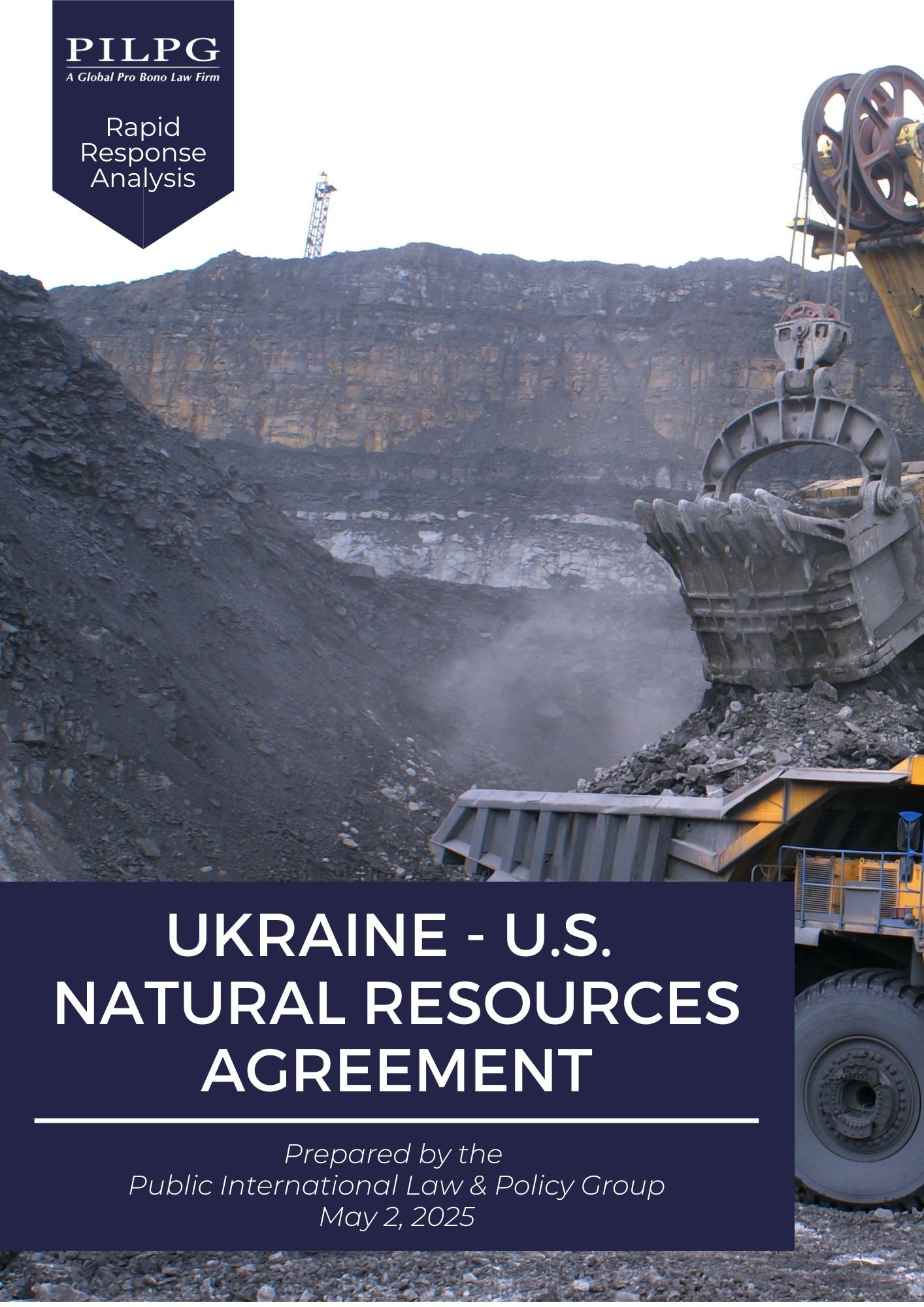
On April 30, 2025, the U.S. and Ukraine signed a significant natural resources deal—an 11-page, legally dense agreement that could influence Ukraine’s post-war economic recovery.
The deal reflects a strategic balancing of interests: Ukraine secures a high-profile international commitment to support its rebuilding, while the U.S. gains investment opportunities in Ukraine’s critical minerals sector. But its real impact will depend on how it’s implemented, the course of the war, and the terms of the Limited Partnership Agreement.
Our Rapid Response Analysis unpacks the deal in clear, accessible terms—explaining what it says, what it means, and what it could mean for Ukraine’s peace and reconstruction process.

As ceasefire discussions in Ukraine progress, ensuring a sustainable peace becomes paramount. Authorizing a peacekeeping force is one avenue for preventing a resurgence of fighting once a ceasefire is in place.
Russia's role within the UN make traditional avenues for authorizing such a force challenging and unlikely. For this reason, PILPG's primer explores alternative mechanisms, including those available in the European Union, for authorizing and deploying a peacekeeping force.

In November 2022, after months of enduring Russian aggression, President Volodymyr Zelenskyy unveiled a 10-Point Peace Formula to address the conflict in Ukraine. PILPG’s international law experts have meticulously analyzed each point of this formula, confirming that every point is robustly supported by existing international legal frameworks. Dive into our analysis to discover the strong legal foundations underpinning Ukraine’s proposal.

On April 27, 2023 Vladimir Putin signed a decree to impose Russian citizenship on the Ukrainian people residing within the Russian-Occupied Territories of Ukraine in Donetsk, Luhansk, Kherson, and Zaporizhzhia. PILPG partnered with Orrick, Herrington & Sutcliffe LLP to produce a Rapid Response Analysis of this “Citizenship Decree '', which threatens deportation of anyone who does not take on Russian citizenship by July 1, 2024. Our analysis concludes that this decree not only places undue hardship on the Ukrainians living in the Occupied Territories, but violates multiple treaties of which Russia is a party, including the Fourth Geneva Convention of 1949, the Genocide Convention, and the Minsk agreements.

